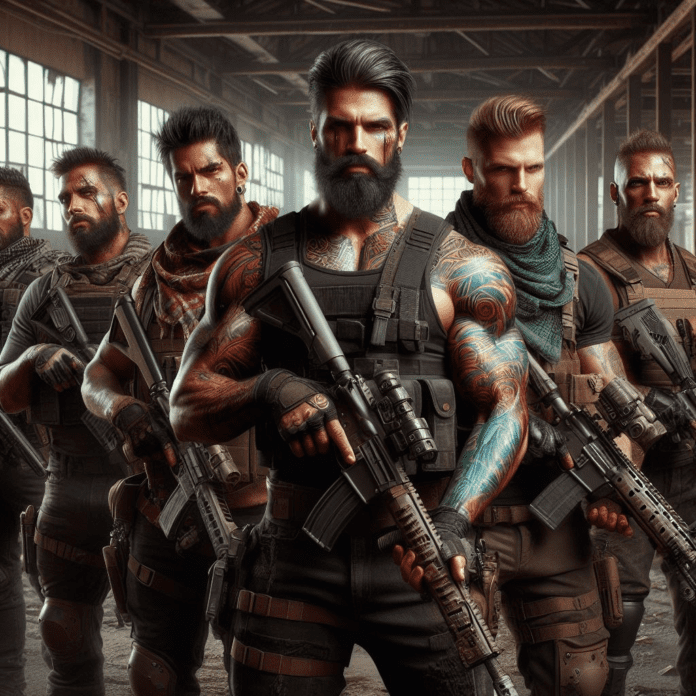The Role of Mercenaries Today
Known Mercenary Groups and Individuals
Besides Blackwater here are some more mercenaries that gained significance in modern warfare. The Wagner Group, a Russian-based private military company, has gained notoriety in recent years. Composed of highly trained and covert mercenaries, they operate globally. Unlike traditional national armed forces, these for-profit warriors prioritize profitability over patriotism.
Their recruitment spans various countries, and their lethality is unmatched. In a notable incident, around 500 Wagner Group mercenaries launched an armoured assault against American special operations forces defending a Conoco gas plant. Despite intense airstrikes, it took four hours to repel them. This incident highlights the power and resilience of modern mercenaries, who operate like heavily armed multinational corporations. Their influence extends beyond Hollywood caricatures, making them a significant force in contemporary warfare.
GardaWorld: Often referred to as the “Blackwater of Canada,” GardaWorld is one of the largest security firms globally. While not a traditional military force, it operates as a mercenary conglomerate. GardaWorld provides security services, risk management, and protection for clients worldwide. Its significance lies in its ability to fill security gaps where state forces are unable or unwilling to operate. Whether in conflict zones or corporate environments, GardaWorld’s services are in demand, emphasizing the growing role of private military contractors in today’s complex security landscape.
The UAE as a Hub for Mercenaries
Despite having a population of around 9 million, with only a million being Emiratis, the UAE boasts a military force of approximately 65,000 personnel, with a significant portion consisting of foreigners. This reliance on mercenaries is driven by several key factors.
Casualty Aversion and Strategic Interests
The UAE’s leadership has pursued aggressive strategies to protect its strategic interests, particularly in regions like Yemen and the Somalian coast. They offer a solution for “casualty aversion,” allowing the UAE to engage in conflict without risking its own citizens’ lives. This approach is appealing to wealthy societies like the UAE that seek to minimize their own military casualties.
Coup-proofing and Plausible Deniability
By employing well-paid mercenaries, the UAE mitigates the risk of internal coups or uprisings. They are unlikely to overthrow an authoritarian government in a country where they have no vested interests. Additionally, they provide a level of “plausible deniability” for the UAE in clandestine military operations, offering a buffer against direct attribution.
Evolution of Private Military Security Companies (PMSCs)
The proliferation of PMSCs, which began notably with the US’s use of companies like Blackwater in Iraq and Afghanistan, has significantly influenced the use of mercenaries worldwide. PMSCs now operate globally, catering to a wide range of clients and conflicts. The UAE entered this arena in 2009 when Erik Prince, the founder of Blackwater, established an 800-member brigade within the country.
Strategic Partnerships and Profiteering
Despite Prince’s eventual fallout with the UAE, cooperation-for-profit between senior US officers and the UAE has continued. The UAE has also invested in cyber warfare units and paid former senior US military staffers for assistance and instruction, showcasing its strategic partnerships in the security sector.
Controversies and Ethical Concerns
The UAE’s use of mercenaries has not been without controversy. Reports suggest that the UAE has hired mercenaries, including Americans and Israelis, for politically motivated assassinations in Yemen. Additionally, the UAE has been linked to the Wagner Group, a notorious Russian mercenary outfit, serving as a central logistics and financing hub.


